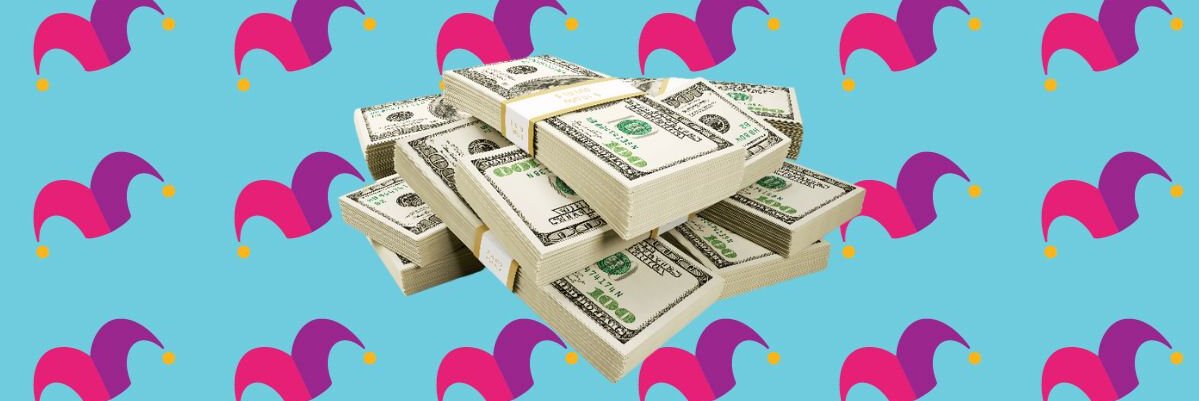Millions of Americans Have $50,000 or More in Forgotten 401(k)s. Here's How to Make Sure You Don't
KEY POINTS
- There's over $1.65 trillion in lost retirement money waiting to be claimed.
- The Department of Labor has created an Abandoned Plan Search tool -- kind of 401(k) lost and found.
- If you track down a forgotten 401(k), you can move it into an IRA or a new 401(k).
It's been over 40 years since 401(k)s first came onto the scene. In that time, these workplace retirement plans have become the main way for many workers to save for their old age. Plus, 401(k)s offer great perks. Not only do they come with tax breaks, but many companies also match a portion of what you contribute.
However, unlike most top individual retirement accounts (IRAs), 401(k)s are managed by employers. So if you leave your job, you need to make sure your nest egg moves with you. Sadly, sometimes sorting out your 401(k) gets forgotten in the stress of changing jobs. As a result, there's over $1.65 trillion sitting in unclaimed 401(k)s.
There are over 29 million forgotten retirement accounts
According to research by Capitalize, a platform that specializes in helping people find their missing retirement funds, we are talking about 29.2 million left-behind 401(k) accounts. The average balance is almost $57,000 each. If you're worried about having enough cash for your retirement, it's worth making sure none of that money is yours.
Below we'll look at how to track down your missing money. First, let's imagine some of that money is yours. Congratulations. There are a few things you can do with it.
- You can cash it out. Depending on your age, this is often not advisable because it could prove costly tax-wise.
- You could leave it where it is. The downside to this is that the fund will bumble along without much management. Plus, you have no control over any fees, which can be hefty.
- You can roll over the funds into a new retirement account. This involves transferring assets into either another 401(k) at your new workplace or an IRA in your name. It will be the best option for a lot of people.
Rolling funds into an IRA often makes sense
IRAs are tax-advantaged accounts that are not attached to a specific employer. And unlike a lot of 401(k)s, you have a lot of flexibility in how you choose your investments and manage the account. In case you're wondering, money rolled over from another retirement account does not count toward your annual contribution limit.
Most top brokerage firms offer different types of IRAs and will help to make the rollover as smooth as possible. Some stock brokers will even match some of the money you transfer. For example, Robinhood offers an uncapped 1% match on 401(k) rollovers. Click here to learn more about Robinhood's IRA match and low fees.
How to find out if you have a forgotten 401(k) account
It doesn't matter how long ago you left your job. If you had money in a 401(k), you may still be able to track it down. Companies like Capitalize will do the legwork for you, but there's a lot you can do yourself.
- Contact your old workplaces: Start by talking to the HR department, especially if you left your job relatively recently. They will likely have records of your fund and contributions and can help you with the next steps.
- Check your documents: Another route -- especially if your memory is a bit hazy -- is to check your old emails and paperwork. Any 401(k) contributions would be recorded on your tax returns. This can help you find the name of the plan, and you can use that to dig further.
- Use online search tools: The Department of Labor has created an Abandoned Plan Search tool, which is a bit like a lost and found for retirement funds. There's also a Registry of Unclaimed Retirement Benefits.
There's a slight caveat to all of this. If your fund balance was less than $7,000 when you left your job, your employer may have taken matters into their own hands. Employers can transfer balances of $1,000 to $7,000 to an IRA in your name, with or without your permission. With less than $1,000, your employer can cash out the balance and mail you a check.
Don't delay tracking down your unclaimed retirement money
I hope many readers find unclaimed funds in a lost 401(k) and can use it to boost their retirement cash. If you do track down a lost 401(k), don't stop there. Move your funds to a low-fee brokerage account or workplace 401(k) where it can earn the best possible returns.
Our Research Expert




